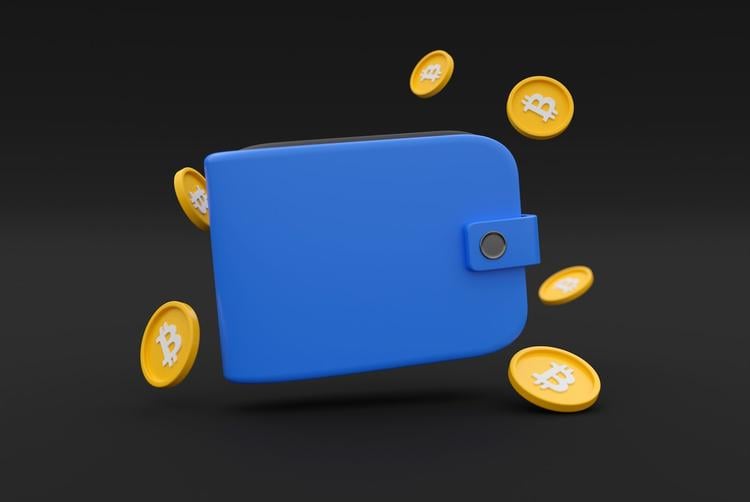
Crypto Hot Wallets and Cold Wallets: All You Need to Know
Discover everything you need to know about hot and cold crypto wallets with the help of LOX Network's latest feature.
Protecting your digital assets is of the utmost importance. In this article, we explore the difference between hot wallets and cold wallets to help maximize your crypto security.
Cryptocurrency wallets are becoming more and more popular, with seasoned traders and industry newcomers looking for the most effective way to store their digital coins. With so many options available, it can be confusing to decide which method is best for you. Today, we’re breaking down the different uses of hot wallets and cold wallets and what to look out for when choosing one.
Hot Wallets and Crypto Wallets: Potato, Potato?
Hot wallets and cold wallets, what’s the difference? When looking to secure your digital tokens, understanding the different wallets on offer and their functions can help you to make an informed decision on what best suits your needs.
Cold wallets are typically a hardware or software device that stores your private keys offline. This is the most secure option when it comes to storing your crypto assets. Cold wallets can also make transactions easier—as there’s no need to be connected to the internet.
Hot wallets, such as TrustWallet, connect directly to the internet and allow for quick asset access, as they store keys in an online-based program. While hot wallets offer the convenience of speed, especially for traders looking to make timely exchanges, they do come with an increased level of risk.
Let’s evaluate each wallet type in further detail to help you make up your mind.
Hot Wallets: Quick and Easy
Hot wallets connect directly to the internet, offering instant access to numerous cryptocurrencies and are perfect for quick transactions. In fact, hot wallets can be accessed through desktop applications, mobile apps, or browser extensions. These wallet types are usually free to download, and most are simple and intuitive to use.
As an online vault, hot wallets are compatible with different blockchain technologies and allow users to purchase, sell, and trade digital assets whenever they please. With your private keys held in a program that connects directly to the web, hot wallets are more efficient than their cold counterparts. That doesn’t mean there’s no risk involved, though. Unlike cold wallets, which store cryptographic keys offline, hot wallets can be susceptible to cyber attacks.
The biggest threat to hot wallets is that private keys stored online can be stolen, particularly in the event of a data breach or system hack. Should you lose your private keys, your coins are rendered inaccessible. In August 2022, decentralized blockchain service Solana lost an estimated $5.2 million in digital assets—the result of a digital attack that affected 8000 hot wallets worldwide.
With stolen tokens completely unrecoverable, storing only a small percentage of your coins in a single hot wallet is an option that makes sense for many traders. But what about cold wallets?
Cold Wallets: Slow and Steady
Generally speaking, cold wallets are more secure than hot wallets. This is because the private key is not connected to an online server during the signing process. In addition, cold crypto wallets have less risk variety.
Cold wallets can be paper wallets or hardware wallets. Paper wallets can be simply printed and signed with a QR code. They also contain private keys, a public key and a public address for loading your coins. A hardware wallet, on the other hand, is a small device that looks like a USB drive and connects to a computer. The private key is generated offline and transmitted directly.
Of course, cold wallets aren’t completely risk-free either. By taking personal responsibility for your digital assets, without complete vigilance, there’s still a chance your coins could become stolen or lost. Take Stefan Thomas, for instance.
With an estimated $321 million in Bitcoin, you’d think he was set for life—right? Wrong. By forgetting his password, Stefan is locked out of his crypto millionaire status, with no means of recovery available.
Although the outcome of weighing up the benefits and disadvantages of each wallet type will differ from person to person, what matters most is that you protect your digital assets at all costs.
Make the Right Choice
For both beginners and experienced traders, there are many different crypto wallet options to choose from. When doing so, consider the balance between easy access and security. Fortunately, there are many crypto wallets on the market that are both secure and user-friendly.
For example, Mycelium offers backup features that keep coins safe, as well as educational content to help you maximize your investment. There’s also MetaMask, a browser-based crypto hot wallet, that enables users to store and trade digital currency. Metamask’s services include providing a 12-word recovery pass-phrase that you can set up to ensure that you always have access to your private keys.
Enhance Your Smartphone Security with LOX
At LOX Network, we’ve developed a new and innovative solution to tackle smartphone theft. Our unique hybrid blockchain bridges digital and physical ownership through the use of NFTs to create salient proof of device ownership.
By merging international data into a single, decentralized blacklist, we’re revolutionizing the smartphone security industry and putting the power of ownership back into the hands of device owners. Discover how we can better secure your wireless devices here.